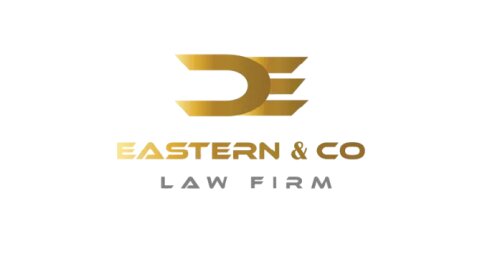Best Employment Rights Lawyers in Dokki
Share your needs with us, get contacted by law firms.
Free. Takes 2 min.
List of the best lawyers in Dokki, Egypt
1. About Employment Rights Law in Dokki, Egypt
Dokki, a busy district within Giza Governorate in Greater Cairo, follows the national framework for private sector employment rights. The primary rulebook is Labour Law No. 12 of 2003, which sets standards for contracts, working hours, wages, leave, and termination. Public sector workers are governed by separate civil service regulations, while private sector disputes are typically handled through labour offices and courts.
In practice, employees in Dokki rely on written contracts, clear notice periods, and documented wage payments to protect their rights. Legal disputes often involve whether a contract exists, whether terms were violated, and what constitutes lawful dismissal or compensation. An advocate or legal counsel with local experience can navigate the relevant administrative bodies and courts efficiently.
Key rights in this framework include contract enforcement, entitlement to wages and benefits as prescribed by law, and access to forums for dispute resolution. Local enforcement in Dokki also interacts with national authorities such as the Ministry of Manpower and Migration and the social insurance system. For accurate guidance, consult a qualified advocate who understands both Egyptian law and the local court process.
Note: this guide provides general information and is not a substitute for tailored legal advice from an advocate licensed in Cairo or Giza.
Source: Ministry of Manpower and Migration - EgyptMinistry of Manpower and Migration (Egypt)
Source: International Labour Organization - Egypt country profileILO Egypt
2. Why You May Need a Lawyer
Working through Dokki based matters often requires precise knowledge of procedures and deadlines. An advocate can help preserve your rights, negotiate settlements, and represent you before labour offices and courts. Below are real-world scenarios common to Dokki residents where legal counsel is typically essential.
- Termination without proper notice or severance - An employer dismisses an employee in Dokki without giving the required notice period or compensation. A lawyer can assess whether the dismissal was lawful, calculate any end-of-service rights, and file complaints with the appropriate labour office or court.
- Chronic wage non-payment or late payment - An employer consistently delays salaries or withholds overtime payments. An advocate can demand arrears, interest, and enforceable orders to ensure back pay is issued.
- Discrimination or harassment at a Dokki workplace - Reports of unequal treatment based on gender, religion, or nationality require proven steps and documentation. A solicitor can help you file a complaint and pursue remedies under the Labour Law and anti-discrimination provisions.
- Misclassification as an independent contractor - A worker is treated as a contractor to avoid benefits and social insurance. Legal counsel can challenge the classification and pursue employee entitlements and social insurance coverage.
- Unlawful wage deductions or benefit reductions - Employers may deduct amounts without lawful basis. An attorney can review pay slips, negotiate the return of deductions, and seek compensation through the appropriate channels.
- Work-related injury or illness with insurance gaps - If coverage under the social insurance system is unclear, a lawyer can help establish eligibility for benefits and navigate the medical and administrative steps.
3. Local Laws Overview
The Employment Rights framework in Dokki is anchored by several specific laws and regulations. Below are the primary statutes and regulations that govern private and public sector employment, along with notes on how they apply locally.
- Labour Law No. 12 of 2003 (and its Executive Regulations) - The main statute governing private sector employment relations in Egypt. It covers employment contracts, working hours, leave, termination, and dispute resolution. The law has been subject to amendments to align with international standards and to streamline administrative procedures. Local practice in Dokki follows the same statutory framework as the rest of Cairo and Giza, with Labour Offices and Labour Courts handling disputes.
- Social Insurance Law No. 79 of 1975 (as amended) - Establishes social insurance coverage for employees, including pension and health insurance components. Employers and employees contribute to the social insurance system, and benefits are administered through the relevant social insurance authorities. This law affects workers in Dokki just as in other Egyptian districts, and benefits can be pursued through the national insurance system.
- Civil Servants Law No. 81 of 2003 - Applies to government and some public sector employees. It governs terms of appointment, leave, discipline, and termination within the civil service framework. Private sector workers in Dokki follow Labour Law, but those employed by state entities rely on civil service provisions.
Recent trends in Egypt emphasize modernization of labour procedures and improved accessibility to dispute resolution. The Ministry of Manpower and Migration has pursued digitization and streamlined processes for wage and dispute cases, aligning with ILO standards. For authoritative details, consult the official sources linked below.
Latest changes and guidance: The Ministry of Manpower has announced ongoing reforms to digitalize complaint intake and streamline employer-employee disputes. These reforms aim to reduce delays in resolving wage and contract issues. See the references for official updates and guidance.
Source: Ministry of Manpower and Migration (Egypt) - labour reform and digitalization initiativesMinistry of Manpower and Migration (Egypt)
Source: International Labour Organization - Egypt labour standards and reformsILO Egypt
4. Frequently Asked Questions
What is Labour Law No. 12 of 2003?
Labour Law No. 12 of 2003 governs private sector employment relations in Egypt, including contracts, wages, leave, and termination. It applies to most employees in Dokki working for private employers. An advocate can interpret how specific clauses apply to your contract.
How do I file a wage claim in Dokki?
Start by notifying your employer in writing of the wage arrears. If unpaid after the notice, approach the nearest Labour Office and, if necessary, file a case with the competent Labour Court. An advocate can prepare documents and represent you.
When should I consult a lawyer for termination?
Consult a lawyer if you believe the termination was unlawful or if you did not receive the proper notice or severance. An advocate can assess legality and begin a complaint or dispute resolution process.
Where can I file a complaint for wage disputes?
Wage disputes can be filed with the local Labour Office or Labour Court in Cairo or Giza, depending on where you work. An advocate can determine the correct jurisdiction and file on your behalf.
Why might I need a lawyer for overtime issues?
Overtime rules are defined in Labour Law and can be complex to enforce. A lawyer helps determine eligibility, calculate owed amounts, and pursue back pay through the appropriate channels.
Can I be fired during a probation period?
Yes, but the grounds must be lawful and non-discriminatory. A lawyer can evaluate whether the probation terms were applied correctly and advise on any unlawful termination.
Should I sign a new contract if my employer changes terms?
Before signing, have an advocate review the proposed changes for legality and risk to your rights. If terms are adverse, negotiation through legal counsel is recommended.
Do I need to pay attorney fees upfront?
Fee arrangements vary. Some advocates charge hourly rates, while others offer fixed or contingent fees for specific disputes. Discuss upfront with your lawyer.
How much can I recover in end-of-service indemnity?
The amount depends on tenure and the contract terms under Labour Law. An advocate can calculate entitlements and negotiate with the employer or pursue court relief.
How long does a Labour Court case take in Cairo?
Timelines vary with case complexity and court load. Wage and contract disputes can take several months to over a year. A lawyer can provide a case-specific estimate and manage expectations.
Is there a deadline to file a wage claim?
Yes. Claims generally must be filed within prescribed time limits after the alleged violation. An advocate can confirm applicable deadlines for your situation and ensure timely action.
Can foreigners work in Dokki and what law covers them?
Foreign workers are subject to Egyptian Labour Law when employed in Egypt. A local advocate can help confirm visa or work permit requirements and ensure rights under Egyptian employment regulations.
5. Additional Resources
Access official resources for detailed guidance and procedural information. Rely on government or official organizational sites for authoritative content.
- Ministry of Manpower and Migration (Egypt) - Official government body overseeing labour standards, complaint procedures, and employer reporting. https://www.manpower.gov.eg
- Central Agency for Public Mobilization and Statistics (CAPMAS) - National statistics and labour market data relevant to wage trends and employment figures. https://www.capmas.gov.eg
- International Labour Organization (Egypt) - International guidance on Egyptian labour standards and reforms. https://www.ilo.org/beirut/countries/egypt/lang--en/index.htm
6. Next Steps
- Define your issue and collect documents - Gather your employment contract, payslips, time sheets, correspondence, and any arbitration or previous settlement offers. Aim to assemble a complete file within 1 week.
- Identify an advocate with local private sector experience in Dokki - Look for lawyers or law firms that advertise expertise in Employment Rights, labour disputes, and Cairo-Giza jurisdiction. Prepare a short list of 2-4 candidates within 2 weeks.
- Consult initial case assessments - Schedule consultations to review facts, likely remedies, and potential costs. Expect 30-60 minutes per initial meeting; some firms offer fixed-fee introductions.
- Confirm fees and engagement terms - Discuss retainer, hourly rates, or fixed fees for specific tasks. Obtain a written engagement letter outlining scope, responsibilities, and payment terms.
- Decide on a strategy with milestones - Choose between negotiation, mediation, or court action. Create a timeline with expected steps and deadlines tailored to your case.
- Initiate appropriate proceedings or negotiations - If pursuing a dispute, your advocate will file with the Labour Office or Labour Court as needed. Expect initial steps within 2-6 weeks of engagement.
- Monitor progress and stay informed - Maintain ongoing communication with your lawyer about filings, hearings, and any new evidence. Adjust the plan if outcomes or timelines change.
Lawzana helps you find the best lawyers and law firms in Dokki through a curated and pre-screened list of qualified legal professionals. Our platform offers rankings and detailed profiles of attorneys and law firms, allowing you to compare based on practice areas, including Employment Rights, experience, and client feedback.
Each profile includes a description of the firm's areas of practice, client reviews, team members and partners, year of establishment, spoken languages, office locations, contact information, social media presence, and any published articles or resources. Most firms on our platform speak English and are experienced in both local and international legal matters.
Get a quote from top-rated law firms in Dokki, Egypt — quickly, securely, and without unnecessary hassle.
Disclaimer:
The information provided on this page is for general informational purposes only and does not constitute legal advice. While we strive to ensure the accuracy and relevance of the content, legal information may change over time, and interpretations of the law can vary. You should always consult with a qualified legal professional for advice specific to your situation.
We disclaim all liability for actions taken or not taken based on the content of this page. If you believe any information is incorrect or outdated, please contact us, and we will review and update it where appropriate.










